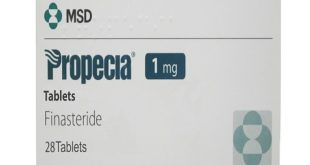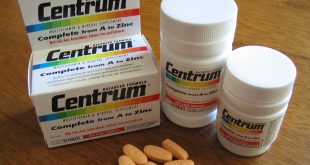PONSTAN Tablets Uses, Dosage And Side Effects
What are PONSTAN Tablets?
PONSTAN tablets are a nonsteroidal anti-inflammatory drug (NSAID) that is commonly used for pain relief, inflammation management, and menstrual cramp relief. They contain mefenamic acid as the active ingredient and are available in various strengths.
In this article, we’ll delve into the various aspects of PONSTAN tablets, including their uses, dosage guidelines, and potential side effects. Whether you’re considering using PONSTAN tablets or simply curious about this medication, we’ve got you covered.
Ponstan Tablets Uses
Relief from Menstrual Pain
Menstrual discomfort is a common issue among women, often disrupting daily activities. Ponstan tablets offer effective relief from menstrual cramps, allowing individuals to navigate through their menstrual cycle with greater ease. Its mechanism of action targets prostaglandins, alleviating uterine contractions and associated pain.
Management of Musculoskeletal Pain
Whether stemming from injuries, arthritis, or overexertion, musculoskeletal pain can significantly impede mobility and quality of life. Ponstan tablets serve as a valuable tool in managing such pain, reducing inflammation and discomfort to facilitate healing and improve functionality.
Treatment of Migraines
Migraines afflict millions worldwide, causing debilitating headaches and sensory disturbances. Ponstan tablets exhibit efficacy in migraine management, mitigating the severity and duration of attacks. By modulating pain pathways and inflammation, Ponstan tablets provide relief and restore normalcy during migraine episodes.
Alleviation of Dental Pain
Dental procedures or conditions like toothaches can induce excruciating pain, necessitating immediate intervention. Ponstan tablets offer rapid relief from dental pain, attenuating inflammation and sensitivity in the affected area. This enables individuals to endure dental treatments more comfortably while awaiting definitive care.
Reduction of Fever
Fever, often indicative of underlying infections or inflammatory processes, can trigger discomfort and malaise. Ponstan tablets possess antipyretic properties, lowering elevated body temperatures and promoting comfort. By addressing the root cause of fever, Ponstan tablets aid in the recovery process and enhance overall well-being.
Management of Rheumatic Conditions
Rheumatic diseases encompass a spectrum of inflammatory disorders affecting joints, connective tissues, and organs. Ponstan tablets contribute to the management of rheumatic conditions by mitigating inflammation and associated symptoms. This fosters improved joint function and mobility, fostering a better quality of life for affected individuals.
Postoperative Pain Control
Following surgical procedures, patients often experience varying degrees of postoperative pain, hindering recovery and rehabilitation efforts. Ponstan tablets play a pivotal role in postoperative pain control, alleviating discomfort and facilitating early mobilization. By optimizing pain management, Ponstan tablets expedite recuperation and promote favorable surgical outcomes.
Relief from Renal Colic
Renal colic, characterized by severe flank pain due to kidney stones, necessitates prompt and effective pain relief measures. Ponstan tablets offer rapid relief from renal colic-associated pain, easing discomfort and promoting passage of kidney stones. This not only alleviates acute distress but also aids in resolving the underlying condition.
Symptomatic Treatment of Osteoarthritis
Osteoarthritis, a degenerative joint disorder, imposes significant limitations on mobility and functionality. Ponstan tablets provide symptomatic relief in osteoarthritis by reducing pain and inflammation, thereby enhancing joint flexibility and easing movement. This facilitates better management of the condition and improves overall quality of life.
Management of Soft Tissue Injuries
Soft tissue injuries, such as strains and sprains, commonly occur due to sports activities or accidents, leading to pain and swelling. Ponstan tablets aid in the management of soft tissue injuries by attenuating inflammation and promoting tissue healing. This accelerates recovery and allows individuals to resume their normal activities sooner.
Gastrointestinal Symptom Relief
NSAIDs, including Ponstan tablets, can occasionally induce gastrointestinal side effects such as gastritis or ulcers. However, when used judiciously and under medical supervision, Ponstan tablets can effectively alleviate gastrointestinal symptoms, restoring comfort and minimizing adverse effects.
Adjunctive Therapy for Inflammatory Conditions
Inflammatory conditions, ranging from tendonitis to bursitis, often necessitate multimodal treatment approaches for optimal outcomes. Ponstan tablets serve as valuable adjunctive therapy in such cases, complementing other interventions to reduce inflammation and alleviate symptoms. This integrated approach enhances treatment efficacy and promotes holistic healing.
Pediatric Pain Management
Children may experience pain due to various reasons, including injuries, illnesses, or medical procedures. Ponstan tablets, when prescribed at appropriate doses, offer safe and effective pain relief in pediatric patients. This ensures that children receive adequate comfort and support during times of distress, promoting their well-being and recovery.
Ponstan Tablets Dosages
General Dosage Guidelines
The typical dosage of Ponstan tablets for adults is 500 mg taken orally, followed by 250 mg every 6 to 8 hours as needed for pain relief. However, individual dosages may vary based on factors such as the severity of the condition, response to treatment, and underlying health status.
Dosage for Menstrual Pain
For the relief of menstrual pain, the recommended dosage of Ponstan tablets is 500 mg orally, followed by 250 mg every 6 to 8 hours as necessary during the menstrual period. It’s advisable to start treatment at the onset of menstrual symptoms for optimal efficacy.
Dosage for Musculoskeletal Pain
In cases of musculoskeletal pain, Ponstan tablets are typically administered at a dosage of 500 mg orally, followed by 250 mg every 6 to 8 hours as needed. Adjustments to the dosage may be made based on the intensity and persistence of pain.
Dosage for Migraines
For the management of migraines, Ponstan tablets can be taken at a dosage of 500 mg orally at the onset of migraine symptoms, followed by 250 mg every 6 to 8 hours as required. Prompt initiation of treatment upon experiencing migraine aura or prodrome may enhance its effectiveness.
Dosage for Dental Pain
To alleviate dental pain, Ponstan tablets are often prescribed at a dosage of 500 mg orally, followed by 250 mg every 6 to 8 hours as necessary. It’s essential to adhere to the prescribed dosage regimen and consult a dentist for definitive treatment.
Dosage for Fever
When addressing fever, Ponstan tablets can be administered at a dosage of 500 mg orally, followed by 250 mg every 6 to 8 hours as needed to control elevated body temperature. Monitoring body temperature and adjusting the dosage accordingly is advisable.
Dosage for Rheumatic Conditions
For the management of rheumatic conditions, Ponstan tablets are typically prescribed at a dosage of 500 mg orally, followed by 250 mg every 6 to 8 hours as directed by a healthcare provider. Close monitoring of symptoms and regular follow-ups are recommended for optimal disease management.
Ponstan Tablets Side Effects
Common Side Effects
Common side effects of Ponstan tablets may include:
- Gastrointestinal Disturbances: Nausea, indigestion, abdominal discomfort, and diarrhea are among the most frequently reported gastrointestinal side effects associated with Ponstan tablets. These symptoms may occur particularly with long-term or high-dose usage.
- Headache: Some individuals may experience headaches as a side effect of Ponstan tablets. These headaches are typically mild to moderate in intensity and may resolve with continued use or dosage adjustment.
- Dizziness: Ponstan tablets may cause dizziness or lightheadedness in some individuals, especially when standing up quickly or engaging in activities requiring alertness. It’s advisable to avoid driving or operating heavy machinery if affected.
- Skin Reactions: Rarely, Ponstan tablets may trigger skin reactions such as rash, itching, or hives. These reactions should be promptly reported to a healthcare provider for further evaluation and management.
Less Common Side Effects
Less common side effects of Ponstan tablets may include:
- Gastrointestinal Ulcers: Prolonged or high-dose usage of Ponstan tablets may increase the risk of gastrointestinal ulcers or bleeding. Individuals with a history of gastrointestinal disorders or those taking concomitant medications that affect gastrointestinal integrity are at higher risk.
- Renal Impairment: In rare cases, Ponstan tablets may cause renal impairment or kidney dysfunction, particularly in individuals with pre-existing kidney disease or those taking nephrotoxic medications. Monitoring renal function periodically is advisable during long-term therapy.
- Cardiovascular Events: NSAIDs, including Ponstan tablets, have been associated with an increased risk of cardiovascular events such as heart attack or stroke, especially with long-term, high-dose usage. Individuals with underlying cardiovascular risk factors should exercise caution when using Ponstan tablets.
- Hematological Effects: Ponstan tablets may affect blood clotting mechanisms, leading to an increased risk of bleeding or bruising in some individuals. Close monitoring of blood parameters is recommended, especially in those with coagulation disorders or taking anticoagulant medications.
Rare Side Effects
Rare side effects of Ponstan tablets may include:
- Liver Dysfunction: In isolated cases, Ponstan tablets may cause liver dysfunction or hepatotoxicity, presenting as jaundice, elevated liver enzymes, or hepatic failure. Prompt medical attention is essential if symptoms suggestive of liver injury arise.
- Allergic Reactions: Although rare, Ponstan tablets may elicit allergic reactions such as anaphylaxis or angioedema in susceptible individuals. Signs of severe allergic reactions, including difficulty breathing or swelling of the face, lips, or throat, warrant immediate medical intervention.
Read More About: Centrum Tablet, Uses, Side Effects, Price
Conclusion
PONSTAN tablets are a commonly prescribed medication for pain relief, inflammation management, and menstrual cramp relief. However, it’s essential to use them responsibly and under the guidance of a healthcare professional to minimize the risk of side effects and complications.
Note:
The information provided in this article is solely based on data collected from other public domains. We are not doctors / professional doctors. We strive to provide accurate and up to date information’s about medicines. We cannot guarantee the accuracy of the data provided and strongly advise consulting a healthcare professional or doctor for medical advice. The content on this blog should not be regarded as a substitute for professional medical guidance. Readers are encouraged to use the information at their own discretion and risk. We do not accept responsibility for any consequences arising from the use of medication information presented in this article.


